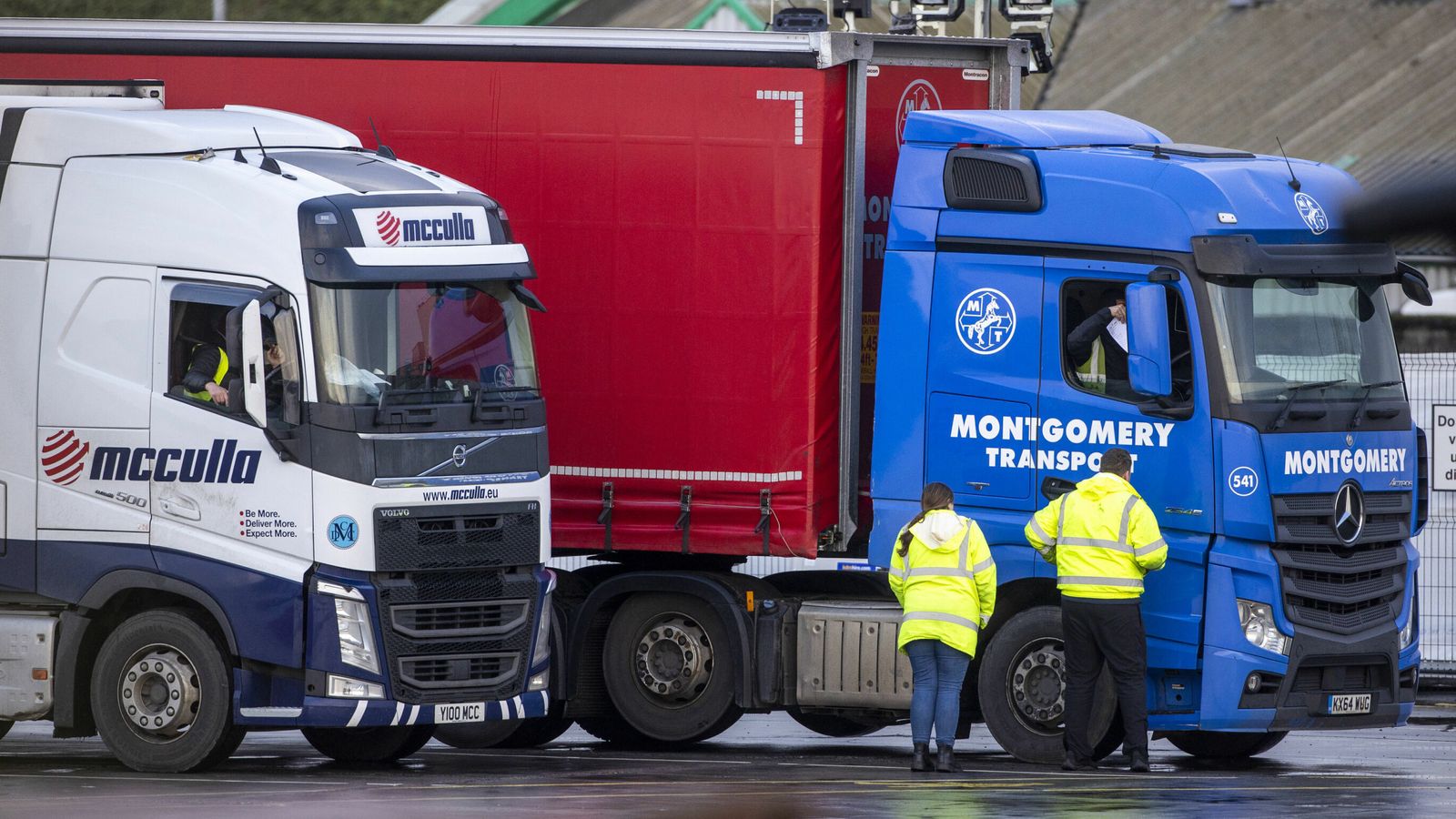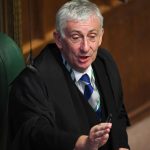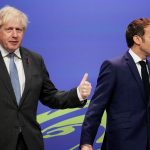Checks on food and agricultural goods from Britain to Northern Ireland must continue pending a hearing next month, a Belfast court has ruled.
A judge has issued an interim order suspending a unilateral decision by agriculture minister Edwin Poots to halt inspections at the region’s ports until a judicial review against the DUP minister’s decision can be heard in full.
The move came as part of a protest by the unionist party, which opposes the post-Brexit rules of the Northern Irealnd Protocol, designed to avoid a hard Irish border.
Mr Poots’ order, which the Irish government described as an effective breach of international law, had not been immediately implemented as his department said officials were “considering the wider implications of fulfilling the minister’s request”.
His actions were challenged in two separate applications in the High Court in Belfast.
Granting applications for judicial reviews, Mr Justice Colton said: “There shouldn’t be any confusion hanging over those in the civil service, so I am persuaded this is a case where there should be interim relief.
“I therefore make the order to suspend the instruction given by the minister for agriculture until further order of this court.”
Paul Givan: Northern Ireland First Minister resigns ending ‘privilege of my lifetime’
Brexit: Northern Ireland minister accused of breaching international law after he orders halt to agri-food checks at ports
Boris Johnson pledges ‘Brexit Freedoms Bill’ to ease ditching of EU laws – but Scottish minister warns of ‘undermining’ devolution
The judge pointed out the checks had been ongoing for more than a year and that the order to stop them had been brought at short notice.
A barrister for Northern Ireland’s Department of Agriculture told the court that their position was that the direction by Mr Poots was “entirely lawful”.
Meanwhile, the DUP’s leader has warned the party would have difficulty reforming a Stormont executive after the upcoming assembly election if issues with the protocol are not sorted out.
Sir Jeffrey Donaldson expressed doubts about the prospect of a short-term return to a fully-functioning devolved administration following the resignation of his party’s first minister Paul Givan.
Sir Jeffrey’s decision to pull Mr Givan out of office is part of the DUP’s escalating its opposition against the post-Brexit trading arrangements that have created economic barriers between Northern Ireland and the rest of the UK.
Mr Givan’s resignation, which came into effect at midnight, automatically removed Sinn Fein deputy first minister Michelle O’Neill from her position.
Other Stormont ministers can remain in post but the executive can no longer meet and is unable to take significant policy decisions.
An assembly election is already scheduled for May.
Mr Givan’s exit raises the prospect of that poll being brought forward several weeks.
A fully functioning administration could only be formed following the election if the positions of first and deputy first ministers are filled by the largest unionist and largest nationalist parties.
The UK and EU agreed to put the protocol in place after Brexit to avoid the introduction of a hard border between Ireland and Northern Ireland.
It states that Northern Ireland will remain part of the UK’s customs territory – so if the UK signs a free-trade deal with another country, Northern Irish goods would be included.
However, it says Northern Ireland has to stick to some EU rules to allow goods to move freely into the Republic and the rest of the EU.
Goods moving from the rest of the UK to Northern Ireland will not be subject to a tariff unless they are “at risk” of being moved into the EU afterwards.
But Environment Secretary George Eustice said in 2020 there would need to be “some checks on some goods” and “some customs processes but not customs checks” at the border with the Republic.
Sir Jeffrey told the BBC: “I’ve withdrawn the first minister on the basis that the protocol issues have not been addressed despite clear commitments and promises given by the prime minister that they would be addressed, and clearly if the protocol issues are not resolved by the time of the election then, of course, it is difficult for us to form a government because of the instability that the protocol creates.
“I have made my position clear – I think there is now an opportunity for the government and the EU to step up.
“The EU said consistently that the purpose of the protocol was to protect the political institutions, political stability and the Good Friday Agreement.
“Well, we know that isn’t happening because unionists do not consent to the protocol.
“There is no consensus for the protocol.”
Announcing his resignation on Thursday, Mr Givan said the protocol had undermined a cornerstone of powersharing in the region, governance with the consent of both nationalists and unionists.






















